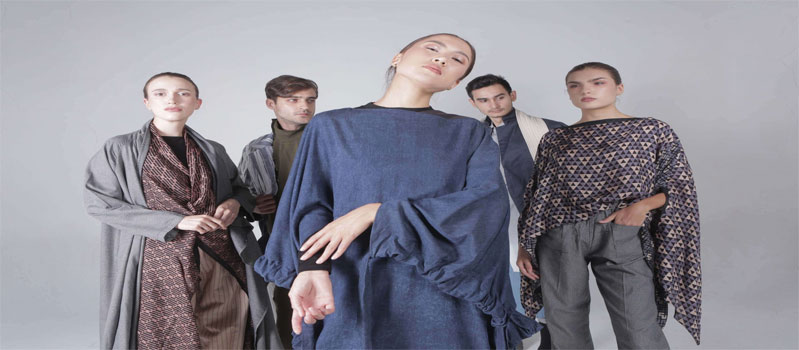In an effort to go sustainable, a growing number of fashion brands are looking for cruelty-free alternatives to animal-based products. Replacing traditional leather with vegan leather and other materials sourced from plants, fruits, and various other natural sources is an essential step in this direction.
Many leading fashion brands are already embracing change. It is only a matter of time before sustainable vegan leather becomes the choice of socially conscious consumers of the day.
Philippe Starck’s Vegan Furniture Collections
Philippe Starck presented a collection of vegan-inspired furniture made from ‘Apple Ten Lork’ for Cassina. Apple Ten Lork an innovative material developed by Italian company Frumat to replace traditional leather with a cruelty-free alternative. It is produced from organic waste, composed primarily of apple skins and cores.
A total of 16 vegan furniture designs were created for Cassina, and the unique fabric is available in three colours, including white, orange and black. The Vegan furniture collection of its own kind made from apple leather was exhibited in Cassina’s Rive Gauche showroom which was turned into an artistic space for the occasion adorned with iconic artworks that tell stories and legends about apples to fit in with the theme.
With fast-changing consumer preferences, many fashion brands, furniture designers and business people from all industries are taking note and making a change in the direction of adopting eco-friendly alternatives.
Hugo ‘BOSS’ Collection Made from Pinatex
Hugo Boss launched their ‘BOSS’ collection of footwear made from an alternative material instead of leather known as Pinatex. The name itself explains that this material is produced from pineapple leaf fibres. Apart from being animal-free and completely vegan, this material utilizes a byproduct of pineapple farming, and after selling their harvest, farmers can sell pineapple leaves for additional income.
To ensure the footwear represents an entirely sustainable solution, the sneakers feature 100% organic cotton laces, cotton and linen linings, soles made from recycled TPU (thermoplastic polyurethane) and natural dyes sourced from plants. It is only the latest in a bid by businesses to go the extra mile to stay competitive and relevant for discerning consumers who believe in making conscious choices of shopping.
Stella McCartney’s Animal-Fur Free Fashion Jackets
After launching collections of eco-friendly dresses made using synthetic silk spider and handbags made from mushroom-based leather, Stella McCartney has come up with a fur-free fashion collection that features 100% acrylic dark brown Sugarcane Coat and oversized Champagne Waistcoat.
It is part of a larger initiative by businesses to move towards a completely fur-free Britain. Many other brands have also joined this movement towards sustainable fashion in Britain by rejecting the use of leather for their products. It is hoped that a ban on fur could be implemented in Britain once this movement picks up pace. Those still working with animal-based leather or fur products may be forced to look for loans for bad credit with no guarantor on benefits if these sustainable initiatives work well. Who says businesses do not have a heart?
Luxe Vegan Backpacks by Ministry of Tomorrow
Ministry of Tomorrow is a sustainable label that works to promote the cause of socially conscious practices and environmental preservation. These MOT ethical vegan backpacks are made from animal-free Italian leather and afford steady income opportunities for the people of Nairobi, Kenya. They are engaged in manufacturing these luxurious, sleek and fashion-forward creations.
These MOT bags are lined with 100% certified organic fair trade cotton and canvas blend. These initiatives offer hope of doing something better in terms of preserving nature and finding sustainable solutions for fashion products that often contribute to the destruction of the natural world and resources. Cruelty-free products are more of a necessity today than a luxury or merely an ethical choice.
Kombucha-Based Vegan Leather Material
Researchers at Iowa State University have successfully created a plant-based leather material from leftovers of Kombucha tea, vinegar and sugar. Kombucha is a traditional drink rich in probiotics, and for fashion use, it is dried and harvested to create a unique leather material. It is not the only innovation of its kind as some footwear designers are making sneakers with alternative textiles sourced from ocean trash. Some brands are engaged in creating fashion accessories from fruit-based leather material as a part of cruelty-free sustainable fashion initiative.
Conclusion:
It is essential to look for practical, functional alternatives to animal-based material used in the fashion industry. Plant-based vegan leather is an elegant alternative, as is evident from the examples above. Apple cores and skins, pineapple leaves and other material that goes in the trash can change lives for better with the development of these vegan leather alternatives.
It can help local communities, and small farmers find new means of livelihood without any additional investments by:
- Using what they threw away to make these novel leather alternatives for use in the fashion industry; or
- Selling it to sustainable fashion brands for extra income
These initiatives would certainly help boost local economies and provide more ethical and sustainable shopping options for socially conscious consumers.


























